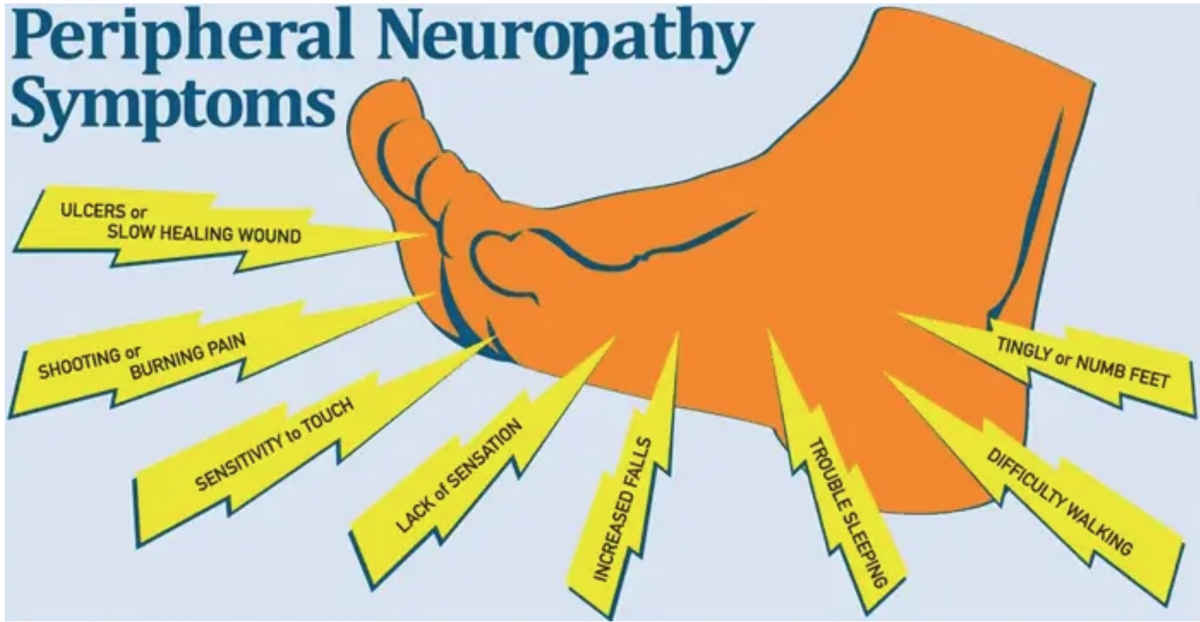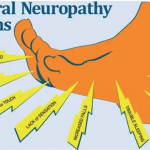How to manage diabetic neuropathy with Dr. Suhyun An
Introduction
Diabetic neuropathy is damage to your nerves caused by diabetes. The damage can cause pain and numbness in your hands and feet, as well as other symptoms.
Diabetic neuropathy is damage to your nerves caused by diabetes.
Dr. Suhyun An says Diabetic neuropathy is damage to your nerves caused by diabetes. It can affect your feet, hands, arms, and legs as well as abdominal organs such as the intestines or bladder.
Diabetic neuropathy occurs when high blood sugar levels cause damage to the small blood vessels that supply nerves with oxygen and nutrients. This may result in:
-
Numbness or tingling sensations (paresthesia)
-
Burning pain that feels like an electric shock when touched (allodynia)
-
Loss of feeling in areas where there's no sensation at all
One type of diabetic neuropathy affects the feet and causes them to burn, tingle, feel numb, or hurt.
Dr. Suhyun An says One type of diabetic neuropathy affects the feet and causes them to burn, tingle, feel numb, or hurt. This type of peripheral neuropathy can also cause muscle weakness, coordination problems, and digestive issues.
Peripheral neuropathy is a common complication of diabetes. It occurs when nerves are damaged by high blood sugar levels over many years. In most cases, it does not cause any symptoms but some people may experience:
-
Numbness or pain in their feet
-
Burning sensation in their feet (or both)
-
Tingling sensation in their toes or heels
If you've been diagnosed with peripheral nerve damage from diabetes then there are some things you can do at home to help manage your symptoms
Peripheral neuropathy also can cause muscle weakness, coordination problems, and digestive issues.
Peripheral neuropathy also can cause muscle weakness, coordination problems, and digestive issues.
Muscle weakness is a result of nerve damage that affects the muscles' ability to contract properly. This can lead to trouble with everyday tasks such as walking or picking up objects. As your nerves become more damaged and your muscles less functional, it may become necessary for you to use a cane or walker for support at some point in your life with diabetes.
Coordination problems occur because peripheral neuropathy affects the way information is transmitted between the brain and body parts like arms and legs--in other words: you lose control over them! This makes simple tasks very difficult (like brushing your teeth), which affects how others perceive us socially because they see us struggling with something so basic yet important in their eyes (ease of access).
Diabetic neuropathy treatments include medication and lifestyle changes designed to keep blood sugar levels under control.
Diabetic neuropathy treatments include medication and lifestyle changes designed to keep blood sugar levels under control.
Medications that are used to treat diabetes can also be effective against diabetic neuropathy, but they can have side effects such as weight gain or fatigue. Your doctor will help you find the best medication for your situation based on your age, health history, and current medications (if any).
It's important not just for your overall health but also specifically for managing diabetic neuropathy symptoms because it may take some time before you start feeling better after starting treatment. In addition to taking medications, here are some lifestyle changes that might help:
Studies have shown that exercise can help reduce pain from diabetic neuropathy.
Exercise can help reduce pain from diabetic neuropathy. Studies have shown that exercise can be beneficial for people with diabetes and neuropathy, but it's important to check with your doctor before starting any new exercise program.
Exercise has many benefits, including helping you lose weight and manage stress.
Massage and acupressure are other alternative therapies that have been shown to reduce pain from peripheral neuropathy.
Massage and acupressure are other alternative therapies that have been shown to reduce pain from peripheral neuropathy. Massage can be done by a professional or by yourself, while acupressure often requires the help of a partner.
In addition to these treatments, there are several other ways you can manage your symptoms at home:
Diabetic neuropathy can lead to foot ulcers which may require amputation of the affected limb.
Diabetic neuropathy can lead to foot ulcers which may require amputation of the affected limb. Foot ulcers are a common result of diabetic neuropathy and can be painful and difficult to treat. Good foot care is important in preventing foot ulcers from developing or worsening, but if you already have them, there are things you can do at home to help heal them faster so they don't get worse:
Monitor your blood sugar and see a doctor about the pain in your feet as soon as possible.
If you have diabetes, it's important to monitor your blood sugar levels and see a doctor about the pain in your feet as soon as possible. Don't wait until the pain goes away on its own or gets worse before seeing a doctor. If you have any of these symptoms:
-
numbness that lasts longer than two hours
-
tingling or burning sensations in the toes and soles of your feet (may be accompanied by swelling)
-
sharp pain when walking that doesn't go away with rest
Conclusion
If you have diabetes, it's important to keep your blood sugar level under control. If you notice any pain in your feet or hands, see a doctor immediately. If left untreated, diabetic neuropathy can lead to serious complications such as foot ulcers and amputation.



























